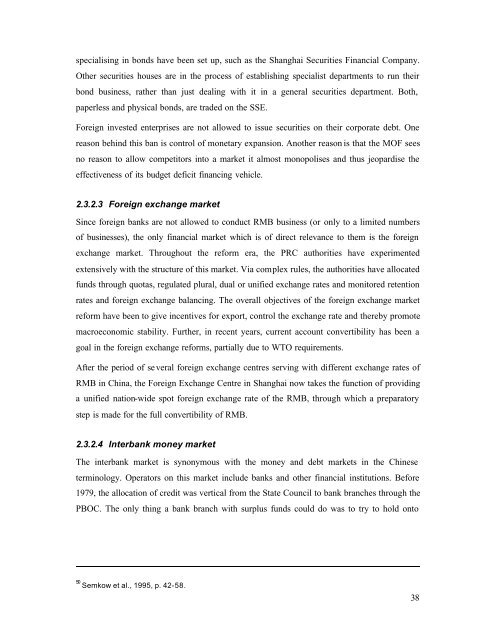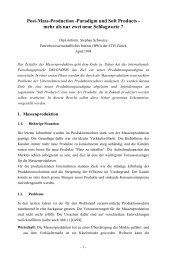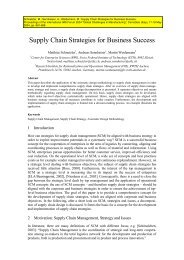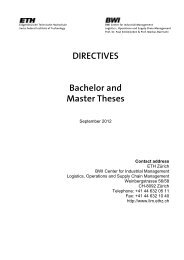The China Venture
The China Venture
The China Venture
You also want an ePaper? Increase the reach of your titles
YUMPU automatically turns print PDFs into web optimized ePapers that Google loves.
specialising in bonds have been set up, such as the Shanghai Securities Financial Company.<br />
Other securities houses are in the process of establishing specialist departments to run their<br />
bond business, rather than just dealing with it in a general securities department. Both,<br />
paperless and physical bonds, are traded on the SSE.<br />
Foreign invested enterprises are not allowed to issue securities on their corporate debt. One<br />
reason behind this ban is control of monetary expansion. Another reason is that the MOF sees<br />
no reason to allow competitors into a market it almost monopolises and thus jeopardise the<br />
effectiveness of its budget deficit financing vehicle.<br />
2.3.2.3 Foreign exchange market<br />
Since foreign banks are not allowed to conduct RMB business (or only to a limited numbers<br />
of businesses), the only financial market which is of direct relevance to them is the foreign<br />
exchange market. Throughout the reform era, the PRC authorities have experimented<br />
extensively with the structure of this market. Via complex rules, the authorities have allocated<br />
funds through quotas, regulated plural, dual or unified exchange rates and monitored retention<br />
rates and foreign exchange balancing. <strong>The</strong> overall objectives of the foreign exchange market<br />
reform have been to give incentives for export, control the exchange rate and thereby promote<br />
macroeconomic stability. Further, in recent years, current account convertibility has been a<br />
goal in the foreign exchange reforms, partially due to WTO requirements.<br />
After the period of se veral foreign exchange centres serving with different exchange rates of<br />
RMB in <strong>China</strong>, the Foreign Exchange Centre in Shanghai now takes the function of providing<br />
a unified nation-wide spot foreign exchange rate of the RMB, through which a preparatory<br />
step is made for the full convertibility of RMB.<br />
2.3.2.4 Interbank money market<br />
<strong>The</strong> interbank market is synonymous with the money and debt markets in the Chinese<br />
terminology. Operators on this market include banks and other financial institutions. Before<br />
1979, the allocation of credit was vertical from the State Council to bank branches through the<br />
PBOC. <strong>The</strong> only thing a bank branch with surplus funds could do was to try to hold onto<br />
50 Semkow et al., 1995, p. 42-58.<br />
38






